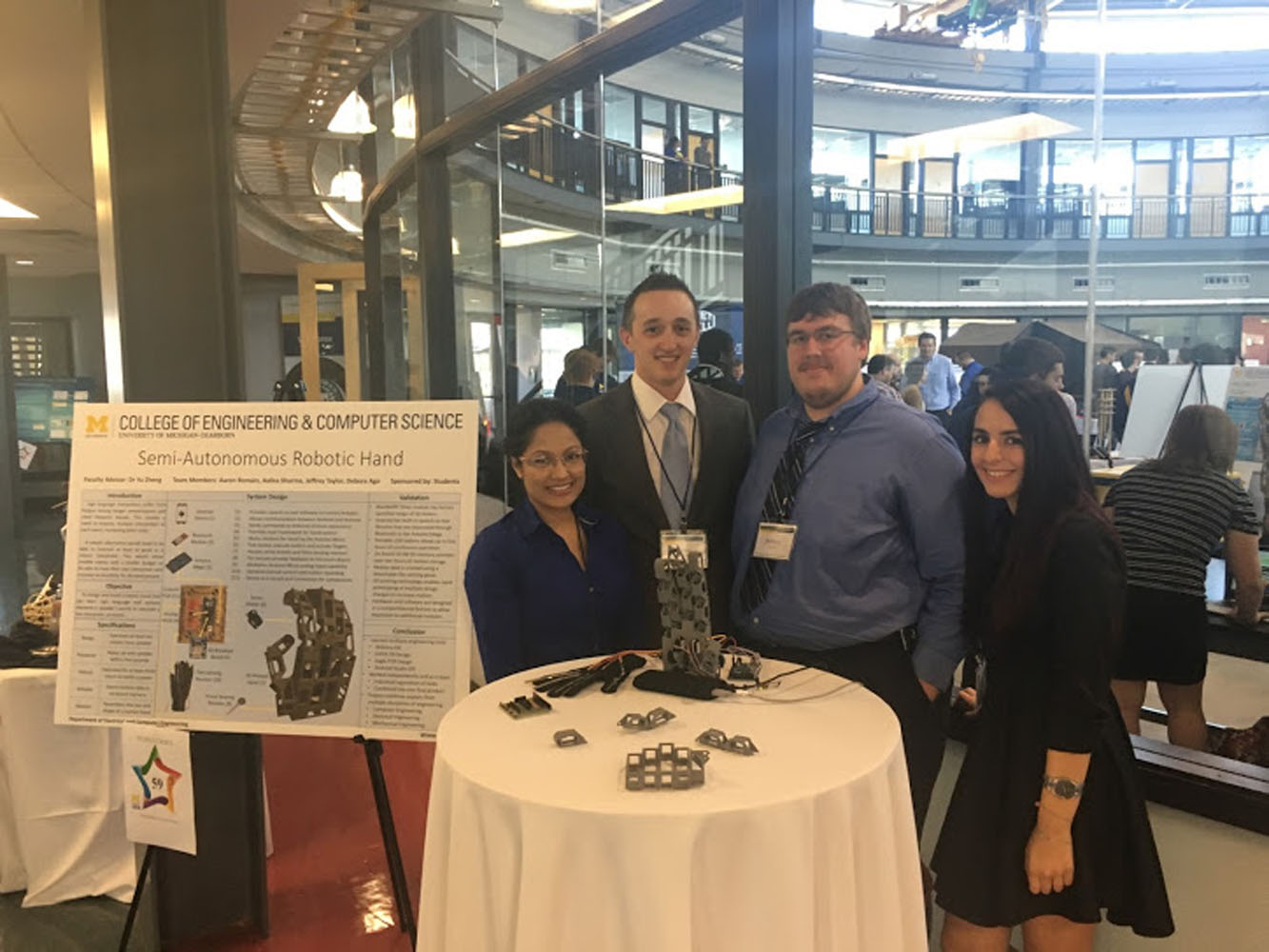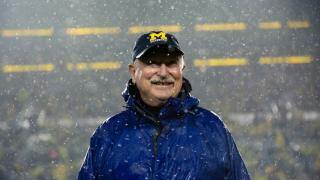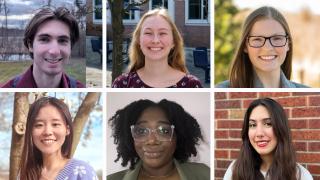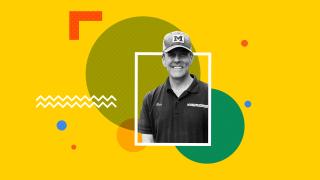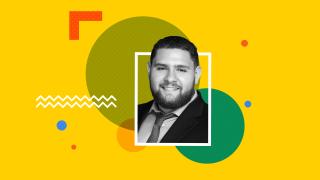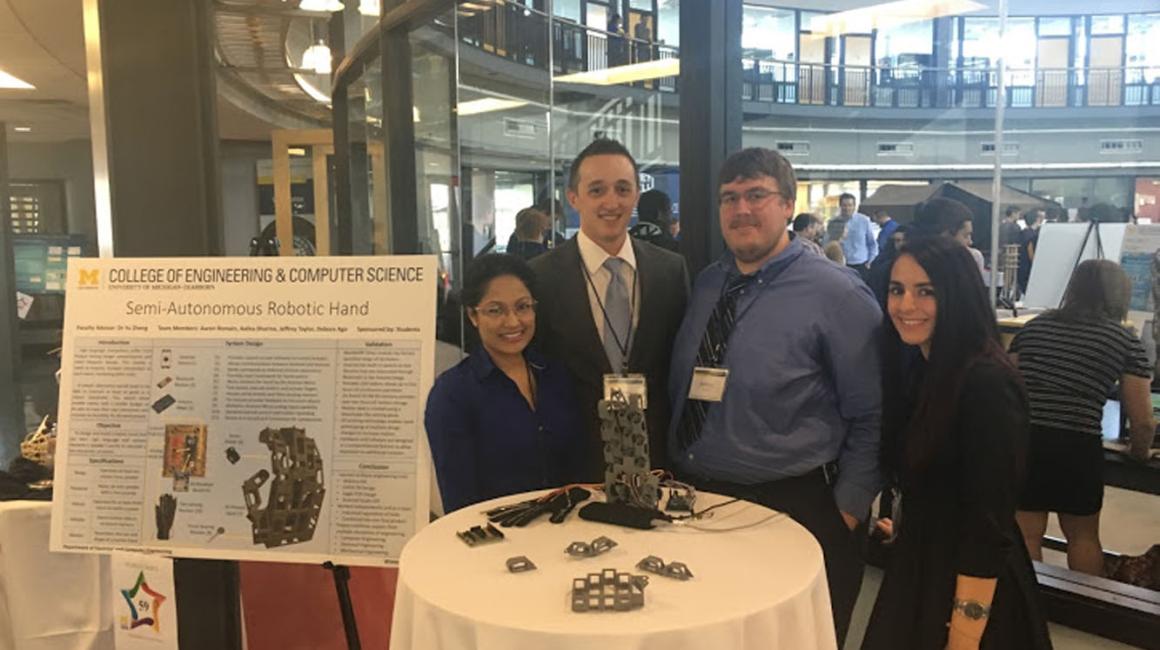
For their College of Engineering and Computer Science Senior Design Project, a group of computer and electrical engineering students wanted to challenge themselves and make something interesting and technologically advanced. They also wanted it to serve a greater purpose.
So for nearly a year, the group met, brainstormed, and then created a fully functioning robotic hand—and programmed it to learn American Sign Language.
“ASL is a common language, but many people outside of the hearing-impaired community are usually not familiar with it. We wanted to find something to help a disenfranchised group of people who are frequently overlooked,” said Romain, who said the robot uses Android’s speech-to-text program to translate the spoken word to ASL.
The group made fingers and the hand itself from scratch using the CATIA 3D modeling software from campus computer labs. They printed the pieces with Computer and Electrical Engineering Professor, and their group adviser, Yu Zheng’s 3D printer. They then programmed an Arduino microcontroller to operate a handful of servo motors, which were in turn attached to the robot fingers in a cyber glove.
Presenting their entry “Robotic Hand” at the College of Engineering and Computer Science’s Experiential Learning Exposition in April, the group took first place in the Electrical and Computer Engineering division of the competition and second place overall.
Themed “This is Where the Real World Begins,” the 2016 Experiential Learning Expo event included the annual Senior Design Competition; senior design, robotics, and Formula SAE displays; and the annual co-op employer recognition luncheon.
Zheng said all of the Expo projects were impressive. But he was especially pleased with his group’s final result.
“This device can translate their speech to sign language so that hearing and speech impaired persons can understand what they are saying,” Zheng said. “Also, there is an extension of their project to realize the reverse. The project is very meaningful. It provides a practical solution to communicating with hearing and speech impaired persons.”
Romain said he’s thankful that his college offers an opportunity for students to work on advanced projects of their choosing for a year—and then gives a public avenue to showcase their endeavor.
“This Expo is very important because it lets students demonstrate their creativity,” he said. “We were able to take our project where we thought best, with assistance from our adviser, in order to build something we both enjoyed working on, as well as something that involved a high level of technical development.
“It gave us the opportunity to make something that not only functioned as intended, but also serves as a solid proof of concept that can easily be expanded in the future.”
The CECS 2016 Senior Design Winners are:
Computer and Information Science, sponsored by IBM
First Place and $500: “Honor Story: Audio Recording Web Application,” Andrew Kuelbs and Jeffrey Yackle
Second Place and $250: “Exoplanet Expedition,” Skyler Basta, Nicole Ebiware, Joshua Grady, James Nelson, Victor Nitos
Electrical and Computer Engineering
First Place and $500: “Robotic Hand,” Aaron Romain, Jeffrey Taylor, Aalisa Sharma, Debora Ago
Second Place and $250: “CANshift,” Dan Chichila, Joe Lusardi, Matt Pettit, Keith Shinn
Industrial and Manufacturing Systems Engineering, sponsored by Hitachi
Single Team $250: “Redesign of the Scheduling and Materials Management Systems for Glaucoma Center of Michigan,” Joshua Suchy, Wanqing Zhu and Xiaole Liu
Mechanical Engineering, sponsored by Hitachi
First Place and $500: “Sequential Filtration Device for Point-of-Care Disease Screening,” Mary-Catherine Ballew, Jordan Mazurek
Second Place and $250: “Baseball Chest Protector Padding Replacement,” Bryan Buchanan, Phil Anders, Brandon MacLennan, Rachel Cleveland
CECS Overall
First Place and $500: “Sequential Filtration Device for Point-of-Care Disease Screening,” Mary-Catherine Ballew, Jordan Mazurek
Second Place and $250: “Robotic Hand,” Aaron Romain, Jeffrey Taylor, Aalisa Sharma, Debora Ago
Most Innovative, sponsored by the CECS Alumni Affiliate of Governors
$500: “Artificial Valve for Liver Transplants,” Matthew Bustamante, Kylie Campbell, Cuong Ho, Anderson Yang
People’s Choice, sponsored by Magneti Marelli
$500: “CANShift,” Dan Chichila, Joe Lusardi, Matt Pettit, Keith Shinn

